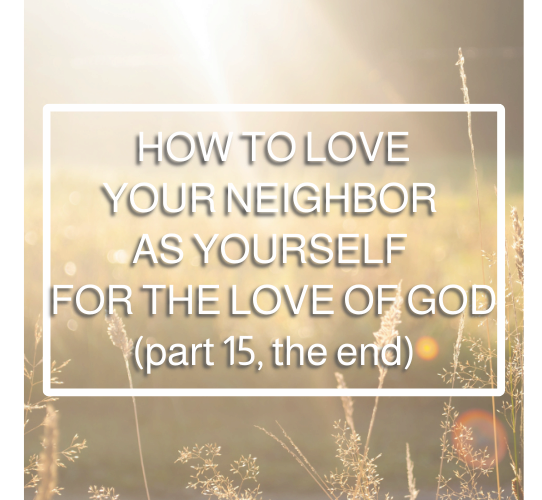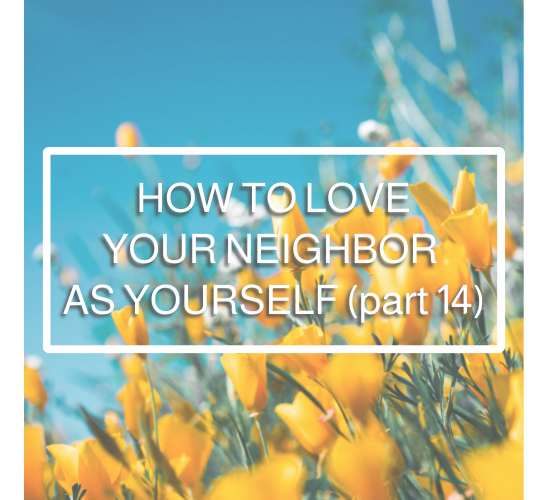Do the Right Thing
2 Peter 1:5b, “Make every effort to supplement your faith with virtue...”
“Make every effort…” “You have all you need…” So begins our disciple-journey with 2 Peter 1. Let’s look now at these spiritual fruits in Peter’s list.
What does it mean to “add virtue” to our faith?
This word, “virtue,” is only translated this way here; everywhere else (Phi 4:8; 1 Pet 2:9; 2 Pet 1:3) it is translated “excellence”, but with the idea of being morally excellent. So, two verses earlier God is described as having “glory and excellence.” This is not God’s commitment to precision, but His commitment to always doing what is exactly right.
For God, this means acting in accordance with His identity, and—which is the same thing—acting in love. For us, similarly, this means acting in accordance with our identity in Christ—beloved, forgiven, washed, renewed, recreated, redeemed, illumined, set-apart—and then acting in order to share this love with others. Or, as we saw in last week’s map of this list, this is a step from our faith in the Gospel toward living out that faith in love for others.
What is “right”? “There’s right and wrong!” self-appointed moral pundits opine. But then, why are there so many of them arguing about it? If it were “black-and-white,” then there would be no news shows or talk radio. Right-and-Wrong is not always as simple or straight-forward as we’d like. This “virtue” is not moral reduction—morality reduced to a few key opinions or acts.
Nor is this “virtue” the Grecian ideal of self-contained propriety: “No matter the circumstances, at least I’ll do what’s right…” No, this virtue is kinetic, responsive, relational—always moving in the direction of others. You can’t have Christian virtue by yourself.
Do what’s right. Yes. But what, positively, does that mean?
First, it means doing what’s consistent with who we are in Christ—living consistently with our faith in the Gospel. For example, we cannot rob banks. Why? Because that is a statement of distrust in God’s promise to take care of us. Likewise, we do not lie. Why? Because people lie to hide themselves from consequences—but we who live beneath the cross are freed by it’s statement of God’s overwhelming love. Our “moral excellence” emerges from our Gospel-shaped perspective.
Second, “virtue” means living for the good of others. It’s not “moral excellence” to say, “You must give so I can take.” Moral excellence says, “I will not do that if it hurts them.” Some have tried to frame morality as mere justice—again, “right versus wrong.” But for morality to be divinely moral, for virtue to be a Christianly virtue, it must bend in the service of love.
Third, this virtue entails a degree of excellence—moral excellence: “I’m not content with getting my way… Who can I share this blessing with?” Or, “I’m not happy just doing the job… I want to see people’s lives really improved.” There’s a “how much more”-quality to Christian morality that always pursues love in the direction of glory. We want to make an immediate, as well as systemic, difference for the good in people’s lives. God’s call and grace on us is meant to spill over. Moral excellence emerges in energetic service.
Fourth, when “virtue” is used of God, it’s translated “excellence”; when it’s used of us, it’s translated, “virtue,” as if to say, “Hey, why not give it a shot?” In other words, we may aspire to virtuous excellence, excellent virtuosity, but only God is excellent. So our “virtue” involves taking it case-by-case and living with imperfection. Virtuous living is not moral neuroticism, fixating and unable to love because we cannot decide on what’s “right and best.” It’s faith committed to love, to action despite the imprecision of our knowledge and the ineffectiveness of our plan.
In summary: “virtue” is the learned-skill of thinking through a situation asking first, “Who am I? What do I do here, based on who I really am in Christ?” And second, asking, “Who can I love? How can I love them better?”
Many of us have “faith.” We believe things. Okay. But has our faith affected our decisions? How we address situations? This is what the journey of discipleship is: learning to live with the Gospel in mind.
Our faith wants to turn into our love. The Spirit disciples us by involving the Gospel in new aspects of our life. And that is God’s virtue coming through into our lives. This is part of what God wants us to enjoy, from Him, in our lives.
So where is “virtue” in our lives? Are we doing what’s right? In our disciple-journeys, maybe our faith needs to be a bit more thoughtful. Slow down your decisions; make room for your faith, for the Spirit, and for love, to have a word.
Photo by Gayatri Malhotra on Unsplash











